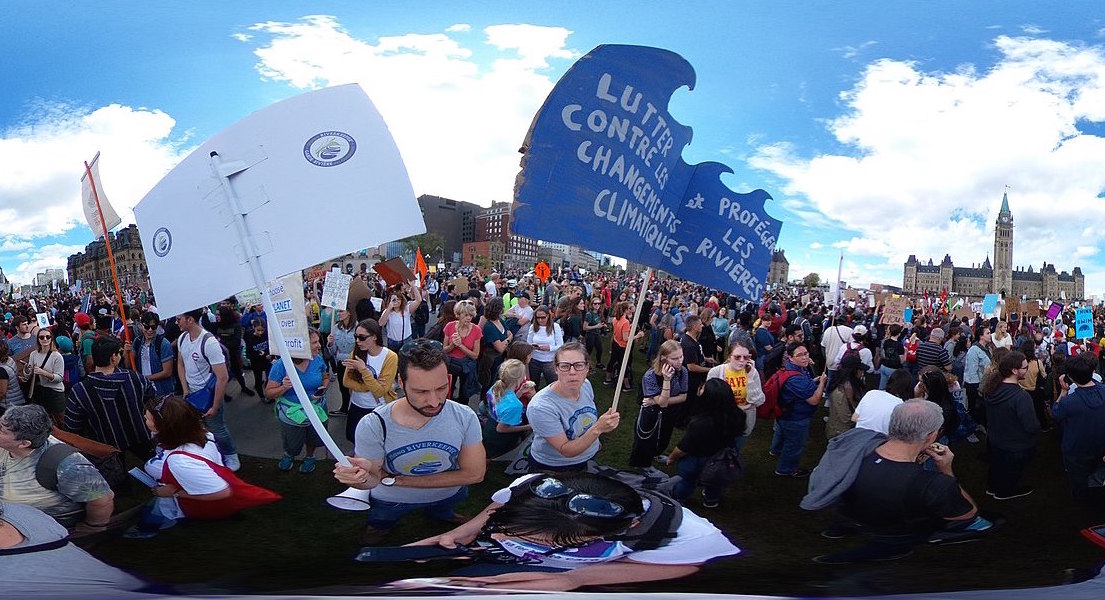People of all ages participated in the global climate strike on September 27, Canada’s largest-ever nationwide mass action, led by youth.
These worldwide student-led protests against inaction on climate change are timely and inspiring.
The huge number of demonstrators in Canada’s capital caught the police and media off guard.
A highlight was when tens of thousands of Ottawa marchers were joined by an equally large group from Gatineau, who had crossed the Ottawa River on the Portage Bridge. A mighty cheer went up when the Ontario contingent turned onto Wellington Street and saw the huge contingent from Quebec coming up from the river.
The energy of the Quebec marchers was infectious. Francophone and anglophone intermingled, marching together to Parliament Hill with protest signs and chants in Canada’s two official languages.
One clear and simple message from the marchers is that the current generation of politicians is failing to protect the planet.
A more difficult message is the absurdity of capitalism. Activist Greta Thunberg spoke at the United Nations of “fairy tales of eternal economic growth.” Youth are calling for “system change, not climate change.”
Another difficult message is that unrestrained natural resource exploitation is violating the rights and destroying the cultures of Aboriginal peoples around the world.
As Walt Kelly’s cartoon character Pogo said in 1972, “We have met the enemy and he is us.”
Canadian politicians are starting to get the message.
Green Party Leader Elizabeth May — for years an unflinching voice for climate action — marched in Montreal.
NDP Leader Jagmeet Singh met with climate strikers in Victoria.
Federal environment minister Catherine McKenna marched in Ottawa, unaccompanied by aides.
A bemused-looking Jim Watson, Ottawa’s fiercely pro-development mayor, stood on the sidewalk watching marchers depart Confederation Park across from Ottawa City Hall.
Prime Minister Justin Trudeau marched in Montreal with his family. Would-be prime minster Conservative Leader Andrew Scheer, who declined to march, accused Trudeau of protesting against himself.
Scheer promised to reduce commute times by widening roads — a measure proven to be ineffective by numerous studies. He would also reinstate a federal tax rebate for public transit users — a measure criticized by economists as costly and inefficient.
CBC News Network had good coverage of the marches — interspersed with automobile ads.
On tackling climate change, we all suffer from cognitive dissonance — “inconsistent thoughts, beliefs, or attitudes, especially as relating to behavioural decisions and attitude change.”
Protesting against ourselves is a start. Real change will require the ongoing, serious commitment of all Canadians. Engagement of public servants is critically important. Teachers have set an example, having done so much to educate students about climate change.
A priority is reconciliation with Indigenous peoples, and with protection of land, water, and other living beings.
Ole Hendrickson is a retired forest ecologist and a founding member of the Ottawa River Institute, a non-profit charitable organization based in the Ottawa Valley.
Image: Holly Drew/Wikimedia Commons



